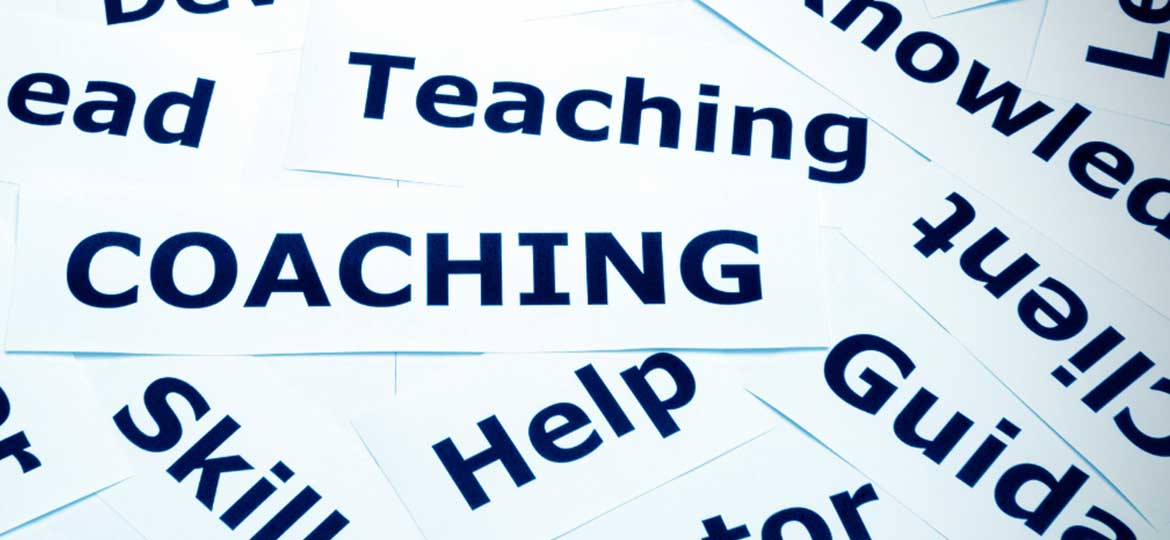Calgary Life Coaching

Life coaching offers powerful support for individuals navigating life transitions, setting meaningful goals, or simply feeling stuck and uncertain. Whether you’re facing career changes, relationship challenges, or struggling with confidence and direction, a life coach can help you regain clarity, boost self-awareness, and create a practical plan for growth. At Best Choice Counselling in Calgary, our experienced life coaches provide structured, client-centered guidance that empowers you to overcome obstacles and make lasting, positive changes. With a focus on future goals and actionable steps, we help you move forward with purpose—supporting your journey toward personal and professional fulfillment. If you’re ready to take the next step, Best Choice Counselling is here to help you thrive.
Our Calgary Therapists That Provide Life Coaching
Murray Molohon
Registered Psychologist
English
Jarret Verwimp
Clinical Canadian Certified Counsellor
English, French, Spanish (basic)
Preeti Rakhra
Registered Provisional Psychologist
English, Hindi
Why You Need a Life Coach
Life coaching has exploded in popularity. The International Coaching Federation shows a 54% increase in active coach practitioners from 2019-2022. Many people still don’t understand what life coaches do or how they could benefit from their guidance.
Life coaches excel at helping you navigate through major life changes when you feel stuck or need direction. They differ from therapists who focus on mental health. Life coaches help you grow personally and professionally. The results speak for themselves – over 70% of individuals who worked with coaches saw better work performance, stronger relationships, and improved communication skills.
Most life coaches have professional certifications, but these credentials’ quality varies. You’ll pay between $75 to $500 per hour based on the coach’s experience and specialty. On top of that, it turns out that while most people think they know themselves well, only 10-15% actually do. Good coaching helps bridge this self-awareness gap.

Recognizing When You Need a Life Coach
Do you feel adrift in your life? You’re not alone. Professional guidance can make a huge difference, but knowing when to ask for help isn’t always clear. The first step toward positive change is knowing when you need a life coach.
Signs you’re feeling stuck or overwhelmed
People often seek coaching because they feel “stuck.” This shows up as uncertainty about direction—in careers, relationships, or personal growth—and makes everyday decisions feel overwhelming [1]. Many describe this feeling as “running in place, exerting effort without gaining ground” [2].
Overwhelm and burnout usually come with this stagnation. Life can feel chaotic when your priorities blur, and stress becomes harder to handle [1]. People who feel overwhelmed often say they’re “out of control” and struggle to keep track of important commitments [1].
Self-doubt is another key warning sign. You might need outside guidance if you catch yourself saying “I can’t” when you think over future possibilities [1]. Many people learn that working with a life coach helps build their self-confidence and break through limiting beliefs [1].
Procrastination and poor time management suggest you could benefit from coaching. Busy days that leave you feeling unproductive point to a gap between activity and progress [1]. Putting off important tasks creates extra stress as deadlines get closer [1].
You might also notice you’re in the same spot you were last year. A coach can help you build momentum toward lasting change if you keep making resolutions but quickly lose steam [1].
Common life transitions that benefit from coaching
Life transitions create natural moments to seek coaching support. Research shows the average person faces most important life changes about every 12-18 months [3]. These times bring up questions about identity, purpose, and direction.
Coaching proves especially valuable during:
- Career shifts: A coach helps you handle uncertainty when you leave a job, start a business, or seek advancement [1].
- Relationship changes: Breaking up or divorcing affects your emotional health and reshapes your identity and future plans [4].
- Major life events: Moving to a new city, starting a family, or retiring requires adapting to new situations [4].
- Health challenges: Dealing with illness or injury—yours or a loved one’s—brings emotional and practical challenges [4].
Researchers call these moments “liminality”—that unsettling in-between feeling that comes with change [3]. Studies show people going through transitions use coaching 40% more than those in stable situations, which shows how much people value support during turbulent times [3].
A life coach helps you see the difference between what you think you should do and what you truly want during these transitions [5]. This process turns potentially confusing life changes into chances for meaningful growth and self-discovery.
What Is a Life Coach and How They Help
A life coach acts as your partner in personal development and helps you set clear goals, tackle obstacles, and create practical plans that lead to meaningful change. These professionals do more than give advice – they team up with clients to realize their full potential and make positive changes in their lives.
Understanding what a life coach does for you
Life coaches help people bridge the gap between where they are now and where they want to be. They provide structured conversations and targeted support that equip clients to discover what matters most and build paths to achieve their goals.
The coaching relationship starts with an original meeting to build trust and mutual understanding. Your coach will then help you:
- Set meaningful goals: Coaches assist in defining specific, measurable, achievable, relevant, and time-bound (SMART) objectives
- Develop action plans: They cooperate to create step-by-step strategies to reach desired outcomes
- Provide accountability: Coaches keep clients committed to their progress through regular check-ins
- Identify obstacles: They help recognize and overcome personal barriers to success
- Boost decision-making: Coaches guide clients toward choices that line up with their core values
Life coaching addresses many areas based on client needs. Coaches help with career changes, achieving goals, improving relationships, balancing work and life, managing stress, building confidence, developing leadership skills, organizing time, and personal growth [6]. To name just one example, a coach might work with a professional who struggles with work-life balance to create better time management or guide a recent graduate in setting career goals [6].
Life coaching focuses on future growth rather than past issues. Coaches emphasize moving forward and taking practical steps to improve everything in life.
Life coach vs therapist: knowing the difference
The difference between life coaches and therapists matters when you need professional support. Licensed mental health professionals must complete extensive education to become therapists, while life coaches don’t need specific degrees or licenses [7].
Coaches focus on future goals and creating desired outcomes. Therapists often get into past experiences to help with present challenges [8]. Experts in both fields agree that coaching focuses on action, while therapy centers on insight [9]. This vital difference shapes how each professional helps their clients.
Coaching sessions target specific goals and personal achievement. They follow a more structured approach than therapy sessions, which often remain open-ended [9]. Life coaches usually work with clients short-term until they reach their goals or make big strides toward them [10]. Therapy might become a longer part of someone’s mental health support system [9].
Note that 25% to 50% of people working with life coaches have mental health conditions that need more intensive support [11]. So responsible coaches refer clients to therapists when they spot issues beyond their expertise. Life coaches cannot treat mood disorders, anxiety disorders, addiction, or other mental health conditions [7].
These key differences help people choose the right type of support for their needs and situation.
What to Expect from a Life Coach Journey
Life coaching partnerships start with a well-laid-out experience and clear milestones. Clients develop new views while working toward meaningful objectives through a gradual process. You can maximize the benefits by understanding what happens during this transformative experience before your first appointment.
First sessions: setting goals and expectations
Life coaching starts with conversations that build connection and clarity. These first meetings, typically lasting 45-60 minutes, help coaches understand who you are and what brings you to coaching [12]. Coaches ask thought-provoking questions to find your core values, aspirations, and current challenges during this phase.
Most coaches help you fine-tune your values and measure long-term goals [13]. You’ll complete assessments that reveal what matters to you. Absolute clarity becomes the main goal of these early sessions—you’ll understand exactly what you want to achieve [14].
Goal-setting forms the life-blood of effective coaching. Your coach guides you to create SMART goals (Specific, Measurable, Achievable, Relevant, Time-bound) that line up with your genuine values [1]. You’ll cooperate to develop an individual-specific plan of action that breaks larger objectives into manageable steps [14].
Coaches explain what you can expect from the process. They share their coaching methodology and set appropriate boundaries for the relationship [15]. This creates a strong foundation and manages expectations about outcomes and timelines.
Building trust and accountability over time
Trust makes coaching relationships successful. Coaches promote safe environments where clients share their genuine challenges, fears, and aspirations [1]. This trust leads to deeper exploration and meaningful breakthroughs as the relationship grows.
The accountability structure emerges through ongoing cooperation. Your coach establishes regular check-ins—weekly, biweekly, or monthly—based on your goals and priorities [1]. These sessions focus on progress, obstacles, and necessary plan adjustments.
Clients drive the accountability process rather than coaches. Effective coaches ask:
- “How would you like me to hold you accountable in a supportive way?”
- “What will you do and by when?”
- “How will I know you’ve followed through?” [16]
This cooperative approach lets you own your experience while getting support to stay on track.
Coaches challenge and celebrate with you. They recognize your accomplishments, whatever the size, to reinforce positive behaviors [1]. When commitments fall short, coaches respond with curiosity instead of judgment, asking “What did you learn?” and “What support do you need?” [16]
Your coaching relationship builds self-awareness, confidence, and better decision-making skills [17]. Studies show that consistent coaching helps clients manage time better and reduce stress [17]. The real value comes from developing sustainable habits and mindsets that serve you long after coaching ends.
The Real Benefits of Life Coaching
Life coaching does more than just guide people. Research shows real improvements across many aspects of life for people who work with professional coaches. The results often exceed their original expectations and create lasting positive changes.
Gaining clarity and direction
Life coaches help clients find what matters most to them. They reconnect people with their core passions and beliefs, then build tailored plans based on these findings [18]. Clients develop SMART (specific, measurable, attainable, realistic, and timed) objectives that match their values [5]. This clarity becomes particularly valuable during life transitions or when people feel stuck.
Studies show that coaching helps people identify beliefs that hold them back. Clients create paths toward their desired futures by tackling these barriers head-on. They learn navigation skills that serve them well beyond their time with the coach.
Boosting confidence and self-awareness
The greatest benefit of coaching lies in improved self-awareness. Coaches help clients spot patterns in their behavior and observe themselves without judgment [2]. This change in viewpoint builds the foundation for lasting change.
Research backs up coaching’s effect on confidence. One study shows that 80% of people who hired a life coach experienced improved self-confidence [6]. Their confidence grew because of:
- Recognition of personal strengths and values
- Development of positive mindsets and affirmations
- Knowing how to set boundaries
- Better emotional regulation
Self-awareness forms the life-blood of emotional intelligence, which affects both personal and professional relationships. Clients learn to name their emotions and acknowledge them without being overwhelmed. They choose thoughtful responses instead of reactive behaviors [2].
Achieving personal and professional goals
Life coaching produces real results. Research reveals that 70% of participants substantially improved their work performance, relationships, and communication skills after coaching [6]. Another study found decreased depression and anxiety along with better quality of life after three months of coaching [5].
Coaches provide accountability that speeds up goal achievement. People reach their objectives faster with a coach than when working alone [7]. They report a stronger sense of purpose and meaning afterward. 77% substantially improved their well-being within three to four months of receiving tailored support [6].
Life coaching gives clients control of their progress. It provides the structure and support they need to turn their dreams into reality.
Choosing the Right Life Coach for You
The right life coach can make a huge difference in reaching your goals. You need to think about several things to find someone who matches your needs and helps you get meaningful results.
What to look for in a life coach
A coach’s credentials and training should be your first priority. The coaching industry isn’t regulated yet, but certifications from organizations like the International Coach Federation (ICF) show a steadfast dedication to professional standards. Research shows that 85% of clients value coaches with credentials, and people working with credentialed coaches are 28% more satisfied with their experience.
The best coaches have exceptional listening and communication skills. They ask questions that spark new points of view and show they really understand you. These coaches create an environment where you feel at ease sharing your goals and challenges.
Empathy and accountability are vital qualities that make coaches work. Great coaches know how to balance compassion with pushing you when needed. They see things as they are—not worse or better—which helps them keep you accountable while staying supportive.
Your coach’s trustworthiness and integrity matter too. This means keeping things confidential, doing what they promise, and being reliable consistently.
Questions to ask before hiring a coach
Make sure you talk to several coaches before making your choice:
- “What is your coaching background and training?” Ask about their certification, education, and real-life coaching experience.
- “What is your coaching approach or methodology?” Their techniques should match how you learn best.
- “Do you have experience working with clients with similar goals?” Most coaches focus on specific areas like career changes, relationships, or personal growth.
- “How do you measure progress and success?” You need clear ways to track how well the coaching works.
- “What are your fees and session structure?” Know what you’ll invest, how often you’ll meet, and how long it might take.
Good coaches offer free discovery sessions to see if you’re a good match. This is your chance to check your connection—the way you click with your coach affects your results a lot.
Conclusion
Life coaching helps people transform their lives. Clients gain clarity about what they want and create practical ways to reach meaningful goals during this experience. Research shows clear benefits – better confidence, deeper self-awareness, and faster progress in both personal and professional areas.
The right coach makes the most important difference in what you achieve. Professional coaches offer well-laid-out methods that help direct life changes while keeping you accountable for steady progress. Coaching is different from therapy, but both serve valuable purposes based on what each person needs.
The coaching relationship works because it blends supportive guidance with challenging conversations. People learn how to reach specific goals and develop lasting skills to set boundaries, make better decisions, and spot patterns that once held them back. These tools stay valuable even after coaching ends.
Most people go through life changes every 12-18 months. Knowing when coaching might help becomes a crucial life skill. A good coach can turn confusion into clarity and uncertainty into purposeful action when you face career changes, relationship updates, or feel stuck.
Coaching’s rising popularity shows how well it works when done right. People who think over this path should check credentials, communication styles, and make sure they click with their coach before they start. This careful selection leads to faster progress and meaningful changes.
FAQs
Q1. What exactly does a life coach do?
A life coach helps clients clarify goals, overcome obstacles, and create actionable plans for personal growth and development. They provide accountability, motivation, and personalized strategies to help you achieve your objectives in various areas of life, such as career, relationships, or personal well-being.
Q2. How is life coaching different from therapy?
While therapy often focuses on addressing past issues and mental health concerns, life coaching is more future-oriented and action-based. Life coaches help clients set and achieve specific goals, whereas therapists are licensed mental health professionals who treat psychological issues and emotional difficulties.
Q3. What are the signs that I might benefit from a life coach?
You may benefit from a life coach if you feel stuck in your personal or professional life, struggle with setting or achieving goals, need help managing major life transitions, or desire to improve your overall well-being and productivity. Feeling overwhelmed, lacking direction, or wanting to boost your confidence are also common reasons people seek life coaching.
Q4. What qualities should I look for in a good life coach?
A good life coach should have strong listening and communication skills, empathy, and the ability to provide honest feedback. Look for someone who is results-oriented, has relevant experience or training, and aligns with your personal values. It’s also important that they practice what they preach and demonstrate a commitment to their own personal growth.
Q5. How much does life coaching typically cost?
Life coaching fees can vary widely depending on the coach’s experience, location, and the type of coaching offered. Rates can range from $75 to $500 per hour, with some coaches offering package deals or programs. Many coaches provide a free initial consultation to discuss your needs and determine if you’re a good fit to work together.
References
[1] – https://www.lumiacoaching.com/blog/how-to-hold-coaching-client-accountable
[2] – https://mariacussell.com/using-coaching-to-build-self-awareness/
[3] – https://www.betterup.com/blog/coaching-turning-transitions-into-transformations
[4] – https://lifecoachtraining.co/how-life-coaching-can-ease-major-life-transitions/
[5] – https://pmc.ncbi.nlm.nih.gov/articles/PMC4015179/
[6] – https://www.betterup.com/blog/life-coaching
[7] – https://www.verywellmind.com/what-is-a-life-coach-4129726
[8] – https://www.naturalhealers.com/life-coaching/job-description/
[9] – https://www.oprahdaily.com/life/relationships-love/a29465193/what-is-a-life-coach/
[10] – https://www.gcu.edu/blog/psychology-counseling/life-coach-vs-therapist-what-are-differences
[11] – https://www.npr.org/sections/shots-health-news/2024/09/09/nx-s1-5106771/coach-coaching-therapy-differences-mental-health
[12] – https://www.noomii.com/article/how-does-life-coaching-work
[13] – https://lifecoachhub.com/beginners-guide-to-life-coaching/life-coaching-process/
[14] – https://achology.com/helping-people/unlocking-life-coaching-excellence-the-five-step-life-coaching-process/?srsltid=AfmBOop0AUTUu6q0_m2zg84RtHaWNUXogV-fGnOPge23BiFTmd9qjQFM
[15] – https://simply.coach/blog/exploring-the-anatomy-of-a-life-coaching-session/
[16] – https://wp.nyu.edu/coaching/tools/accountability/
[17] – https://tickthoseboxes.com.au/10-examples-of-accountability-coaching/
[18] – https://movingforwardcoaching.com/confidence-coach/




